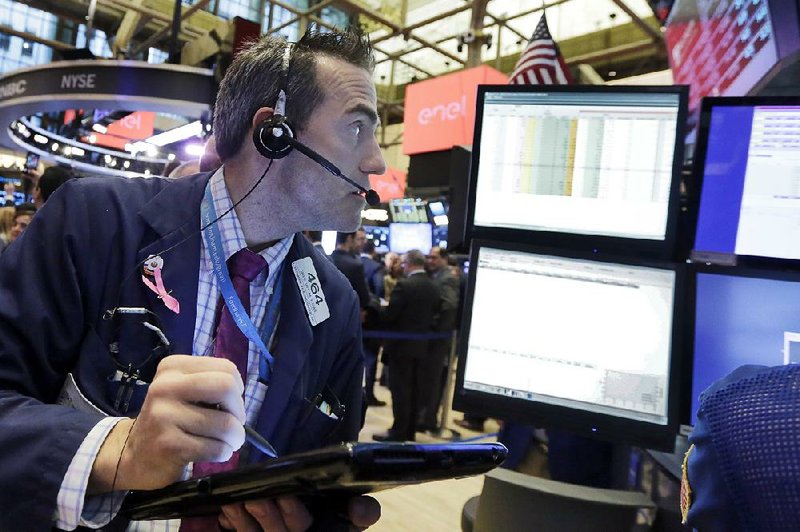NEW YORK -- Investors made a small move back to safer assets Friday afternoon after the government's November jobs report showed continued hiring, but weak wages.
The Dow Jones industrial average fell 21.51 points, or 0.1 percent, to 19,170.42. The Standard & Poor's 500 index rose 0.87 points to 2,191.95. The Nasdaq composite added 4.55 points, or 0.1 percent, to 5,255.65.
The weak finish appeared to mark an end, at least for now, of the post-election rally for U.S. stocks.
Shares of real estate and household goods companies rose, but banks, which have soared since the presidential election, took losses.
Most stocks finished higher, and the biggest gains went to companies that pay big dividends, similar to bonds. Investors also bought bonds, and prices rose and yields fell.
The dollar also weakened as investors expected less inflation.
The jobs report called into question some of investors' hopes about the state of the economy, and they reversed some of the moves they've made since the presidential election three weeks ago.
"It suggests that inflationary pressures maybe aren't building as quickly, at least on the wage side, as some had supposed," said Russ Koesterich, head of asset allocation for BlackRock's Global Allocation Fund. He said investors want to see a combination of strong wage growth and stimulus spending to energize the economy in 2017. The weak wage figures throw that into doubt.
"You're less likely to see inflation build if people aren't getting paid more, because they can't afford to spend more," said Koesterich.
The Labor Department said U.S. employers added 178,000 jobs in November as hiring remained steady. Investors have long expected that the Federal Reserve will raise interest rates later this month, and the jobs report did nothing to dispel that notion. But fewer people looked for work and hourly wages slipped.
Bond prices, which have been falling sharply since the presidential election, rose. The yield on the 10-year Treasury note fell to 2.30 percent from 2.45 percent.
Lower bond yields pushed investors to buy utility and real estate companies and consumer goods makers, which are often compared to bonds because of their big dividend payments. When bond yields fall, those stocks become more appealing to investors seeking income. General Growth Properties rose 62 cents, or 2.5 percent, to $25.46 and Exelon rose 84 cents, or 2.6 percent, to $33.01. PepsiCo climbed $1.57, or 1.6 percent, to $100.60.
The drop in bond yields also affected banks because yields are linked to long-term interest rates. Lower interest rates mean banks can't make as much money from lending. Goldman Sachs fell $3.27, or 1.4 percent, to $223.36 and Citigroup gave up $1.25, or 2.2 percent, to $56.02.
The financial sector of the S&P 500 is the highest it's been since 2008, up 13 percent since the presidential election.
Benchmark U.S. crude rose 62 cents, or 1.2 percent, to $51.68 a barrel in New York. Brent crude, the standard for pricing international oils, picked up 52 cents, or 1 percent, to $54.46 a barrel in London. The price of oil surged 12 percent this week after OPEC countries agreed to trim the production of oil next year. That was the biggest weekly rise in oil prices since February 2011.
Business on 12/03/2016
